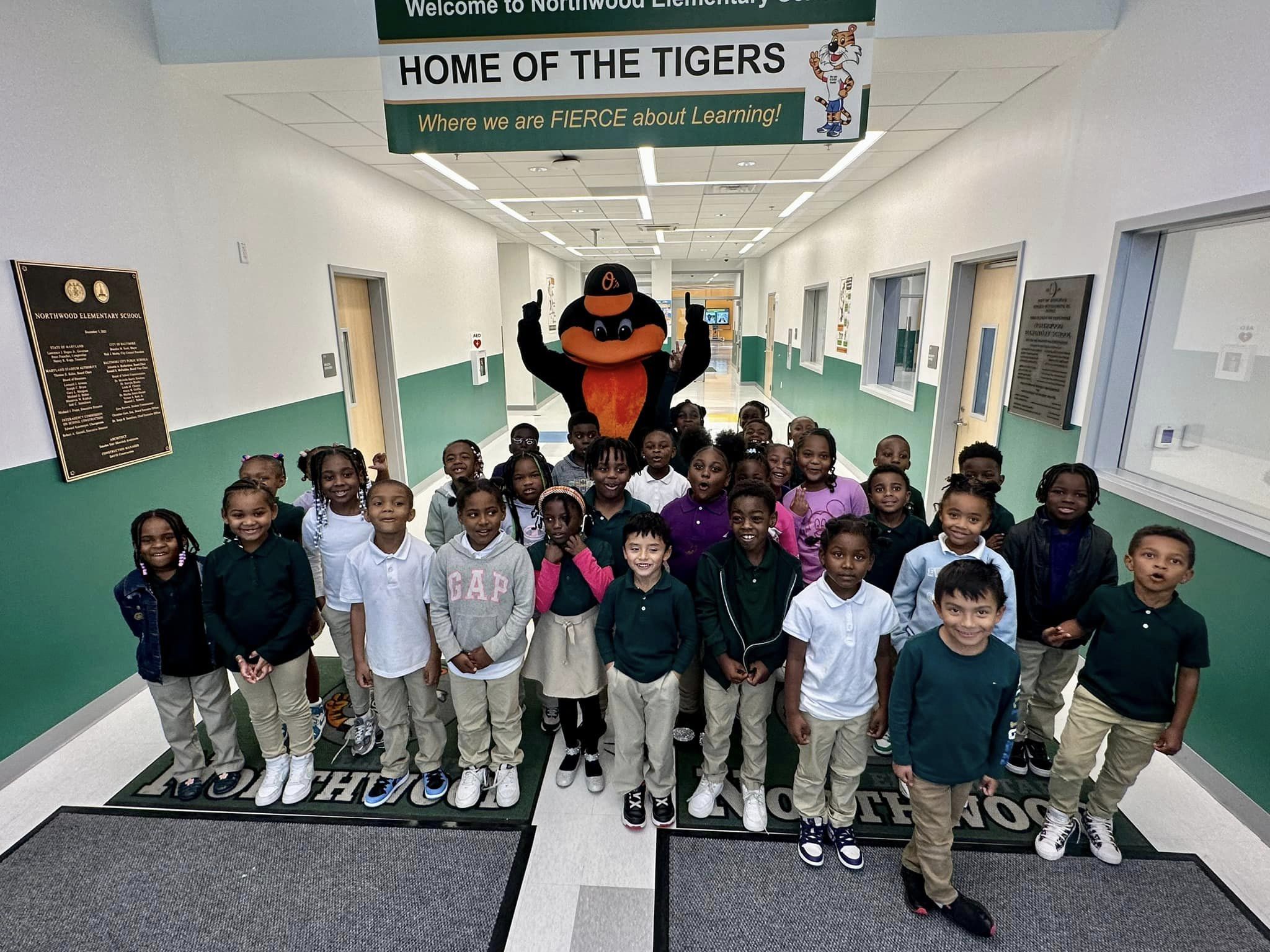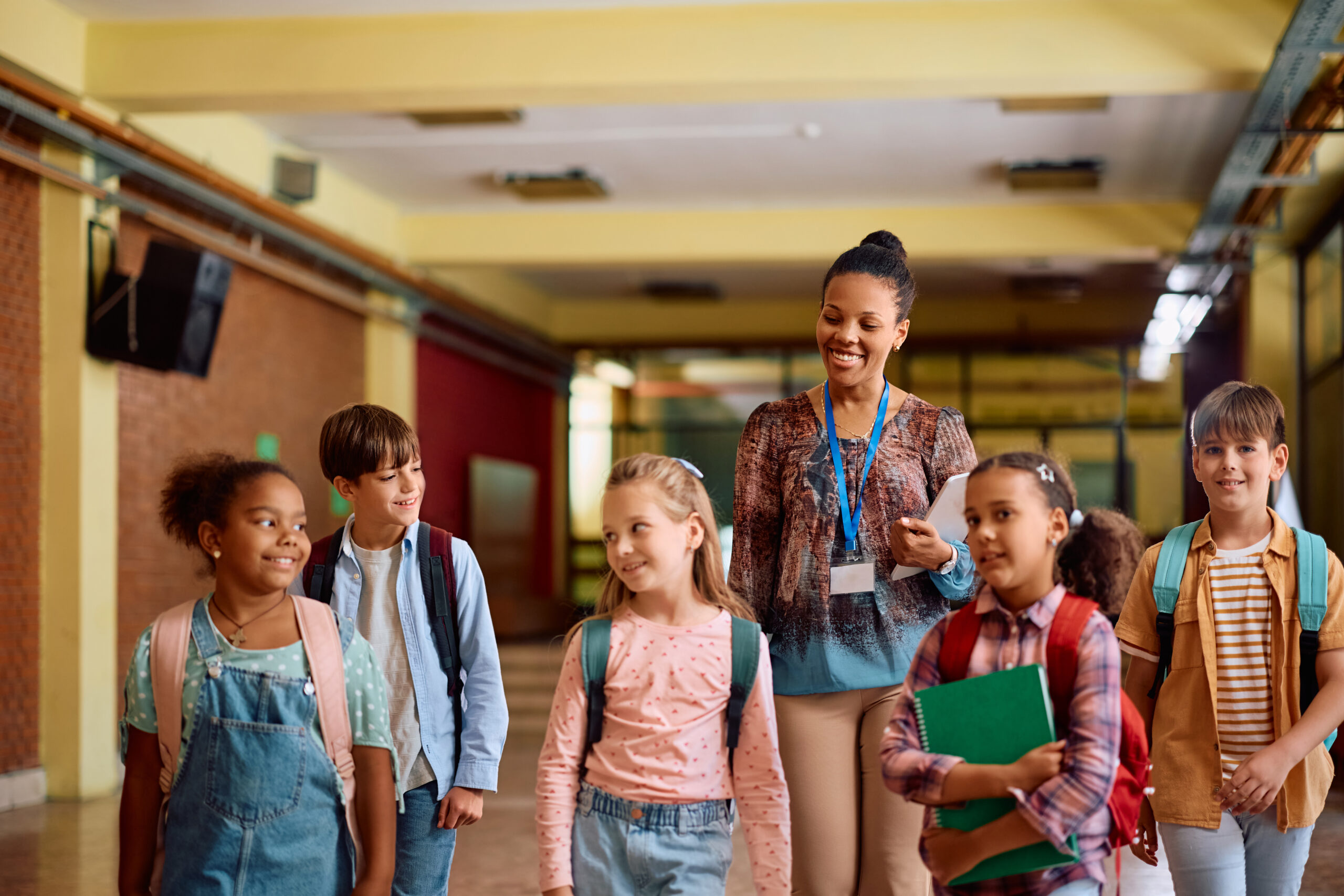Why a Grade School builds students for high school challenges
Wiki Article
Creative Learning Activities in Kindergarten: Enhancing Skills With Play and Interaction
Creative learning tasks in kindergarten function as fundamental experiences for young learners (Private School). These activities motivate skill growth via spirited interaction and social communication. Kids explore their imagination, enhance communication, and discover beneficial social abilities. Each experience adds to their growth in unique means. Understanding exactly how these activities form very early advancement discloses the extensive effect of play in education. What details aspects make these experiences so reliable in supporting well-shaped individuals?The Role of Play in Early Childhood Growth
While lots of might underestimate the relevance of play, it works as a fundamental part of very early childhood years development. Via play, kids explore their atmospheres, foster social abilities, and establish cognitive abilities. Involving in unstructured tasks allows them to use their imagination, try out analytical, and enhance their vital thinking skills. Play gives a safe space for psychological expression, making it possible for kids to browse their feelings and construct resilience.In addition, play encourages physical development as children participate in tasks that boost their electric motor abilities and control. Communication with peers during playtime promotes team effort and communication, laying the groundwork for future connections. Grade School Peoria. Educators and moms and dads identify that play is not simply an activity yet an important aspect of knowing, shaping a youngster's capacity to flourish and adapt in numerous scenarios. Inevitably, play improves youngsters's lives, preparing them for the difficulties of the future while promoting a lifelong love for learning
Innovative Arts and Crafts: Stimulating Creativity
Creative arts and crafts play a substantial function in stiring up youngsters's creative imaginations and improving their creative abilities. These activities motivate self-expression through various tools, such as painting, attracting, and sculpting. By taking part in hands-on jobs, children find out to control products, promoting great motor abilities and hand-eye sychronisation.Furthermore, imaginative arts provide a system for analytical and vital thinking, as children discover various techniques and techniques to their creations. This exploration enables them to experiment, choose, and learn from their experiences.
Partnership is an additional key facet, as kids commonly collaborate on group tasks, sharing ideas and sources. This communication not just builds social abilities but also supports a sense of area. Ultimately, innovative arts and crafts offer as essential tools in a preschool setting, advertising cognitive, psychological, and social development while sparking the innate curiosity and creative imagination of young learners.
Interactive Narration: Building Language Skills
Interactive narration works as an effective device for constructing language abilities in young youngsters, as it engages them in the narrative procedure and encourages energetic participation. Via storytelling sessions, youngsters are welcomed to pay attention, react, and also add to the unraveling story. This interactive layout supports vocabulary advancement by subjecting them to brand-new words in context.As they take part, kids exercise essential interaction abilities, such as expression and expression. They discover to sequence events, identify characters, and understand the story, promoting vital reasoning. Additionally, interactive narration commonly integrates visual help, audio impacts, and props, which even more enhance involvement and understanding.
In addition, when children share their very own tales, they experience a sense of firm and creative thinking, strengthening their language abilities in an encouraging atmosphere. Inevitably, interactive storytelling cultivates a love for language and literary works, establishing a solid foundation for their future scholastic success.
Hands-On Science Experiments: Urging Questions
Hands-on science experiments give young students with important opportunities to discover and make inquiries about the world around them. Participating in simple, interactive experiments permits kindergarteners to ask concerns, make predictions, and observe results firsthand. These tasks stimulate interest and foster a feeling of marvel, motivating kids to examine the homes of materials, reactions, and all-natural sensations.Experiments such as planting seeds or blending baking soft drink and vinegar not just highlight scientific principles but also improve vital assuming abilities. Youngsters learn to document their observations, promoting literacy and numeracy as they determine, compare, and record data. In addition, hands-on scientific research promotes a development way of thinking, training durability as they browse obstacles and learn from mistakes.

Collaborative Gamings: Fostering Teamwork and Social Abilities
Participating in joint games supplies kindergarteners a special platform to create teamwork and social abilities while improving the inquiry-based understanding promoted by hands-on scientific research experiments (Grade School). These video games motivate youngsters to interact towards common goals, advertising interaction and collaboration. As they browse various difficulties, they find out to share responsibilities, discuss roles, and settle conflicts-- necessary components of efficient team effortVia structured activities such as team problems, relay races, or participating storytelling, children not only improve their social communications yet additionally strengthen their emotional knowledge. They gain insights into compassion and support, discovering that each kid's payment is valuable. Additionally, these collaborative experiences promote a sense of neighborhood within the classroom, producing bonds that prolong beyond private play. By integrating collective games into the curriculum, educators can prepare for important life skills that will benefit youngsters in their future instructional and social settings.
Often Asked Concerns
Exactly How Can Parents Support Creative Learning in the house?
Parents can support creative learning at home by giving varied products, encouraging exploration, article participating in creative play, asking flexible questions, and fostering a secure setting where kids do not hesitate to share their ideas and creativity.
What Materials Are Ideal for Arts and Crafts Activities?
A range of products boost arts and crafts tasks, including building paper, directory scissors, adhesive, markers, paints, and recycled products. These resources influence imagination and enable children to explore their creative imagination via hands-on experiences.How Do Teachers Examine Kid's Creativity?
Teachers examine youngsters's creativity through observations, portfolios of job, and open-ended jobs that motivate self-expression. They examine analytic abilities, originality, and willingness to experiment, supplying understandings right into each youngster's one-of-a-kind imaginative development and capacities.What Are Some Instances of Outdoor Creative Activities?

How Can Social Themes Be Integrated Into Creative Discovering?
Cultural styles can be integrated into imaginative discovering by including diverse tales, music, art, and practices, encouraging kids to discover and celebrate various histories, fostering inclusivity and understanding while improving their creative thinking and cognitive skills.Youngsters explore their imagination, enhance communication, and discover valuable social skills. Through play, kids discover their environments, foster social abilities, and establish cognitive capabilities. Additionally, play motivates physical growth as youngsters engage in activities that enhance their electric motor abilities and coordination. Innovative arts and crafts play a substantial duty in firing up kids's creativities and improving their creative look at here abilities. Interactive narration offers as an effective device for developing language skills in young children, as it engages them in the narrative process and encourages active involvement.
Report this wiki page